Ho Chi Minh's entry into journalism almost simultaneously with his choice of the proletarian revolutionary path was not a chance encounter. On his revolutionary journey, associated with the stages of national transformation, there were revolutionary newspapers directly organized and directed by him. In different conditions, the number of printed copies was not uniform, the capacity and format of each newspaper was different, but the common goal was always "fighting against colonialism, imperialism, feudalism, propagating national independence and socialism". With a very professional journalism style based on a cultural foundation bearing the mark of the times, Ho Chi Minh deserved to be an international journalist of the 20th century.
True proletarian international journalist
From 1919 to 1969, Ho Chi Minh had 50 years of continuous journalism. The number of articles he published was about 2,000. Thus, on average, he wrote 40 articles each year, an impressive number for any professional journalist, and also a special phenomenon in the history of Vietnamese journalism.
Professor Ha Minh Duc commented: “It can be said that except for his great works, Ho Chi Minh's thoughts were expressed mainly through the press. Therefore, during his lifetime, the press was the offensive front, where struggles on the ideological front took place.”
Ho Chi Minh's journalistic works show the maturity of revolutionary awareness at the same time as the maturity of journalistic profession. Ho Chi Minh's cultural values in journalistic works written in many different languages are therefore naturally recognized as part of Ho Chi Minh's revolutionary career!
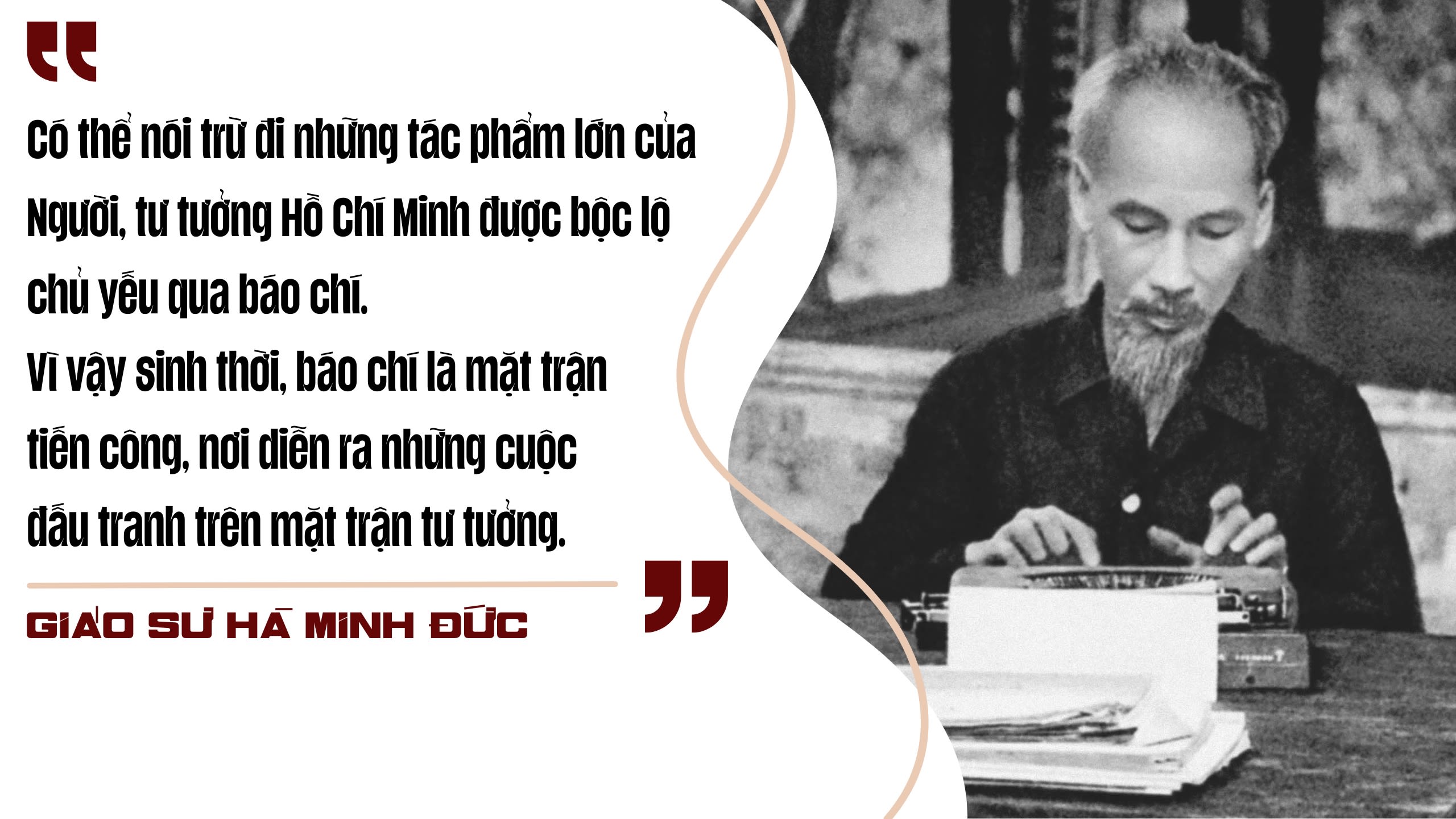
Uncle Ho's path to journalism was also arduous and full of obstacles, but his success could only be explained by his superior intelligence and extraordinary willpower. As Ho Chi Minh said, "Uncle Ho's experience in journalism was the reverse experience in journalism: learning to write in French first, then in Chinese, and finally in Vietnamese." Thanks to the guidance of a French communist comrade, Uncle Ho began to practice writing short news for the newspaper Workers' Life (La vie ouvrière), each news story only 3-5 lines long. When he got used to it, the French friend asked Uncle Ho to write longer stories. "Like that, gradually, Uncle Ho could write articles 15-20 lines long, then whole columns. At that time, that comrade said: "Now we have to write shorter, the same things but we have to write clearly and concisely."
Only by imagining the process of Uncle Ho's "apprenticeship" right in the capital of French colonialism, in difficult living conditions and hard work, can we fully see the will of an exemplary revolutionary. The challenge was even greater when Uncle Ho had to practice writing for newspapers in a language that was not his own people's language. Looking at the list of Uncle Ho's articles from 1919 to 1924, we can somewhat imagine that arduous struggle: "1919: 4 articles, 1920: 2 articles, 1921: 11 articles, 1922: 27 articles, 1923: 35 articles, 1924: 60 articles".
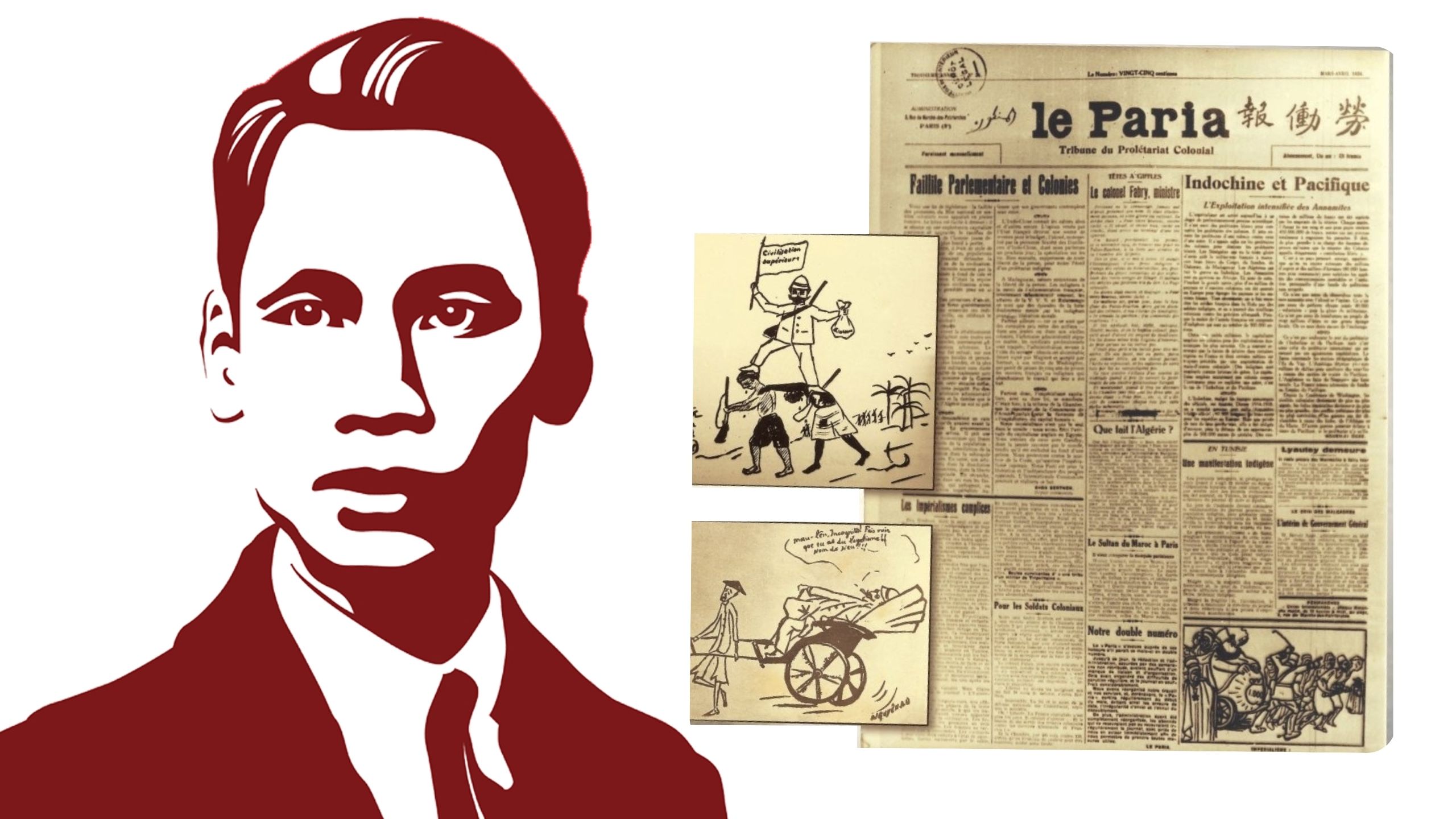
Nguyen Ai Quoc directly organized the newspaper Le Paria (The Miserable), nominally the Voice of the French Colonial Union.
Professor Ha Minh Duc commented: “Thus, the number of articles gradually increased in the following years. Writing 60 articles in a foreign language in one year, and covering many different topics, further proves the thinking and writing ability of a talented writer.”
Not only did he contribute articles to progressive newspapers in France, he also directly organized the newspaper Le Paria (The Miserable), which was named the Voice of the French Colonial Union. This was a forum for him to fully demonstrate his capacity as a professional journalist, addressing a wide range of issues, from Europe to Asia, from America to Africa... He also collaborated with some Algerian and Magadh comrades... but he played the main role: as editor-in-chief and chief writer. From 1922 to the end of 1923 when he secretly went to the Soviet Union, he wrote nearly 40 articles for Le Paria.
From a patriotic youth with little political experience and limited knowledge of journalism, but with the determination to “learn journalism to propagate the revolution”, Uncle Ho quickly matured into a journalist and a professional revolutionary. With a diverse pen, able to cover many topics, with a wide range of reflection from Asia to Europe, from America to Africa, Ho Chi Minh established the prestige and stature of a true international proletarian journalist.
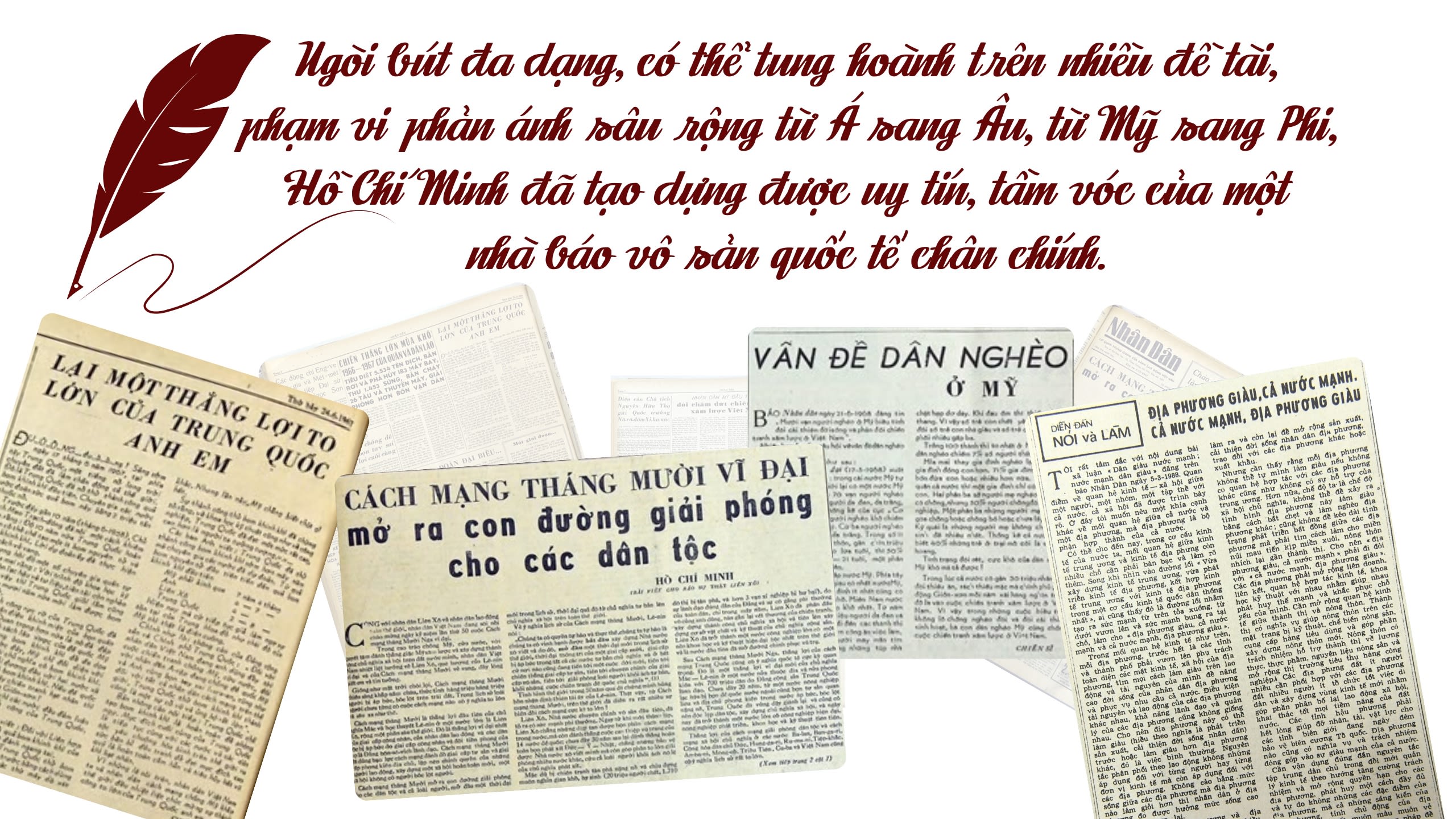
Multilingual journalist
Another special thing is that there are few leaders who write in many languages like Ho Chi Minh. His foreign language ability has created more opportunities for him to see the world around him, and to increase the exchange of experiences with his comrades and colleagues.
In addition to writing for newspapers in French, Ho Chi Minh also wrote for the newspaper Tieng Moi, the Communist International in Russian, and the Cuu Vong Daily in Chinese... In the following years, returning to the Fatherland and directly leading the revolutionary cause, he wrote thousands of articles for Party newspapers.
His international stature was demonstrated in his ability to exploit materials from foreign newspapers, especially "using materials from enemy newspapers to fight the enemy". This is a common practice in modern world journalism, creating a clear propaganda effect. This can be seen in Ho Chi Minh's series of journalistic short stories: "American Ethics", "American Civilization", "American Freedom"; "9 Million Crazy People"... With a high ability to generalize, a humorous and witty writing style, Uncle Ho's articles demonstrate a flexible, creative and modern journalistic style. He stood in the position of representing a nation that loves peace, respects reason and justice to expose the enemy, condemn the savage and brutal nature of forces that consider themselves "representatives of civilization", but harbor the ambition to destroy other nations and trample on human dignity.
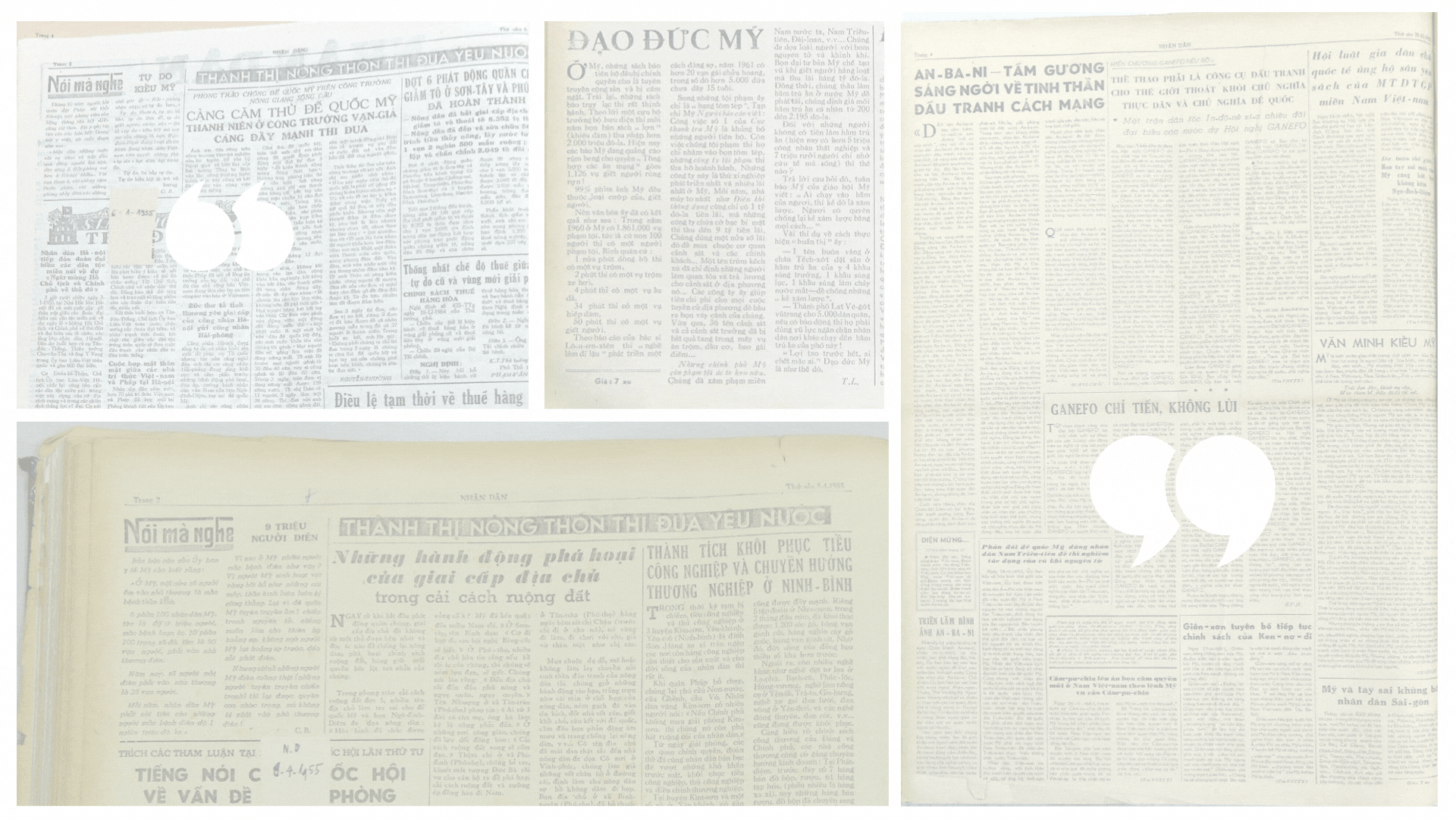
With his sharp polemic ability to go straight to the burning issues of the times and the nation, Ho Chi Minh's journalistic works are both the voice of justice and truth, and demonstrate profound communist humanism, always towards and protecting people.
Ho Chi Minh not only knew many languages, but also had a deep understanding of the cultural background of the countries that used those languages. Therefore, in addition to his ability to write for independent newspapers, he could also coordinate, organize, and gather other comrades in the international communist and workers' movements to publish newspapers together or write together on major topics. Le Paria is a convincing proof of that valuable ability.
In later years, when he went to the Soviet Union and worked in the Eastern Department of the Communist International, his ability continued to be developed. A series of articles assessing the major issues of the Indochinese revolution in the post-Soviet period of decline, drawing lessons and giving strategic instructions that were meaningful as an official guide of the Eastern Department to the Indochinese communist movement, written in Russian, published in installments in the Communist International magazine, were identified by historians as written by Nguyen Ai Quoc with a number of leaders of the Communist International and the Eastern Department! It should also be mentioned that at that time, he had just escaped from Hong Kong prison not long ago, Russian was a difficult language and the people who co-wrote the series of articles with him were all famous international journalists and revolutionary activists...
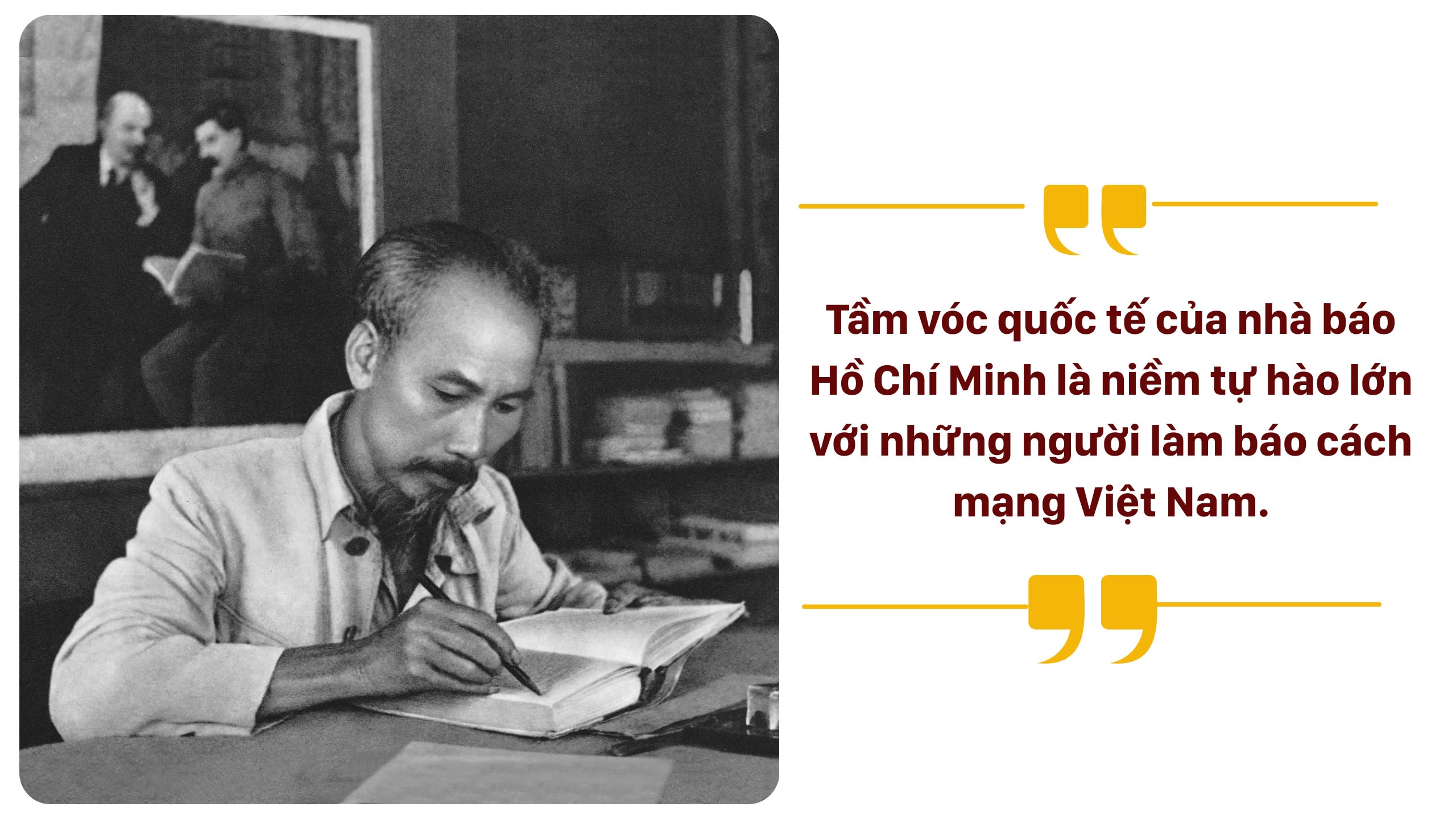
Indeed, the international stature of journalist Ho Chi Minh is a source of great pride for Vietnamese revolutionary journalists. Accessing documents about Uncle Ho's time as a journalist abroad, I was even more amazed by the marks he had created. As researcher Do Quang Hung said, such discoveries "have opened up a different way of thinking for me when exploiting the great legacy that President Ho Chi Minh left for us."
Journalist, great thinker
Research on Ho Chi Minh's journalism career has shown that: He was an outstanding cultural figure, a great man who had a great influence on the history of the nation and the world in the 20th century, that has been proven. He was a professional journalist, used many languages, addressed many big issues, had profound significance to life, that is also indisputable. But to say that he was a journalist of international stature, we must also mention the height of Ho Chi Minh's ideology in his journalistic works. Ho Chi Minh's views on the relationship between national liberation and class liberation, on the colonial proletarian revolution and the mother country... have become valuable assets, contributing to the theoretical treasure of the international communist movement.
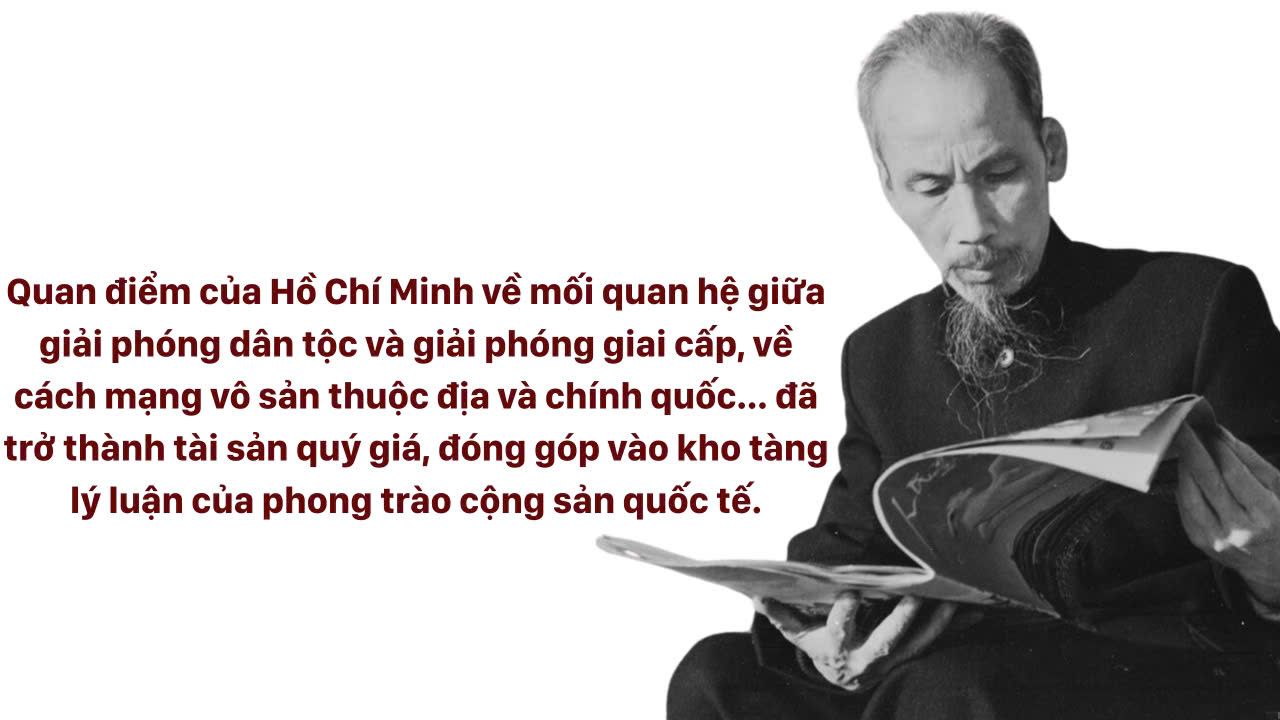
In journalism, Ho Chi Minh stood out for his ability to judge and perceive issues in a sober, independent, and profound manner. Ho Chi Minh's basic ideology expressed in his journalistic works was the consciousness of national liberation (nothing is more precious than independence and freedom), human liberation, and upholding the criteria of equality in international relations.
Comrade Pham Van Dong commented: “In Ho Chi Minh’s revolutionary thesis, the central point is the thesis about people. For Ho Chi Minh, the goal, the end, the means and the driving force of the revolution are all in people. Everything starts from people and people create everything. That viewpoint of Ho Chi Minh, in the end, is the respect and love for people, is communist humanism”.
For Ho Chi Minh, the goal, the end, the means and the driving force of the revolution are all in people. Everything starts from people and people create everything. That viewpoint of Ho Chi Minh is ultimately a feeling of respect and love for people, it is communist humanism.
Comrade Pham Van Dong
Associate Professor, Dr. Nguyen Ba Linh said: “Since becoming the first communist of Vietnam, along with carrying out the tasks of the Communist International and the French Communist Party, Ho Chi Minh spread Marxism-Leninism and the path to national salvation to the country, preparing for the founding of the Party. The newspapers Nguoi cung kho, Viet Nam hon, the book Duong cach mun, Ban xu che chan doc tac tac phap, and the articles he wrote for Doi song cong dan, Tap chien cong san, Tap tin quoc te... are important tools to help Vietnamese people in patriotic organizations gradually shift from traditional patriotism to patriotism based on Ho Chi Minh's ideology and stance”.
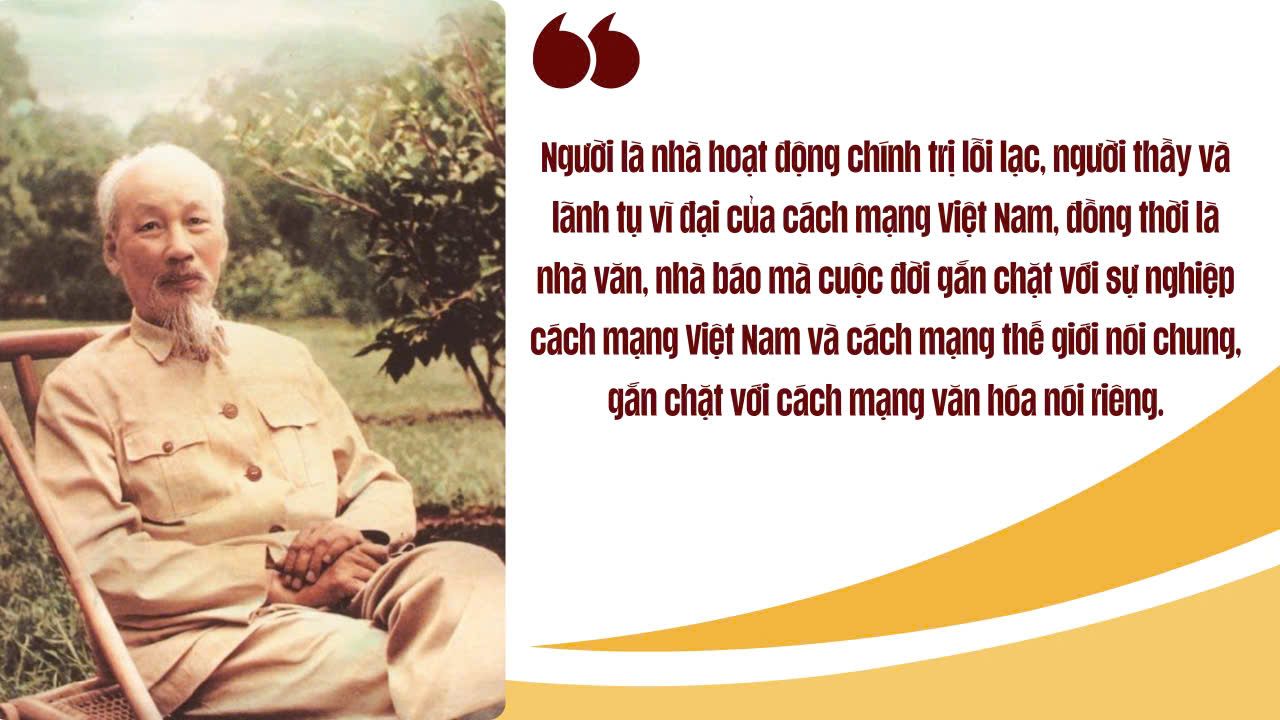
Comrade Truong Chinh, author of the famous Cultural Outline, commented: "He was an outstanding political activist, a great teacher and leader of the Vietnamese revolution, and at the same time a writer and journalist whose life was closely tied to the Vietnamese revolution and the world revolution in general, and closely tied to the cultural revolution in particular."
The height of Ho Chi Minh's ideology has been recognized by scholars and politicians around the world. French journalist Lecotrer wrote: "Mr. Ho revived a people, recreated a nation, led two wars that were essentially wars of the oppressed. His fight against France led to the dissolution of a large colonial empire. His fight against America showed the limits of technical power when confronting people."
Cambodian King N. Sihanouk came from a different perspective: “In this brutal world, he has given us, as well as many other peoples, reasons to hope.”
Ho Chi Minh's journalistic stature is primarily based on the ideological stature and political consciousness of a professional revolutionary, a great world cultural figure as recognized by UNESCO. However, it is also reflected in the excellent journalistic ability, the acumen and dynamism in capturing information of a professional journalist.
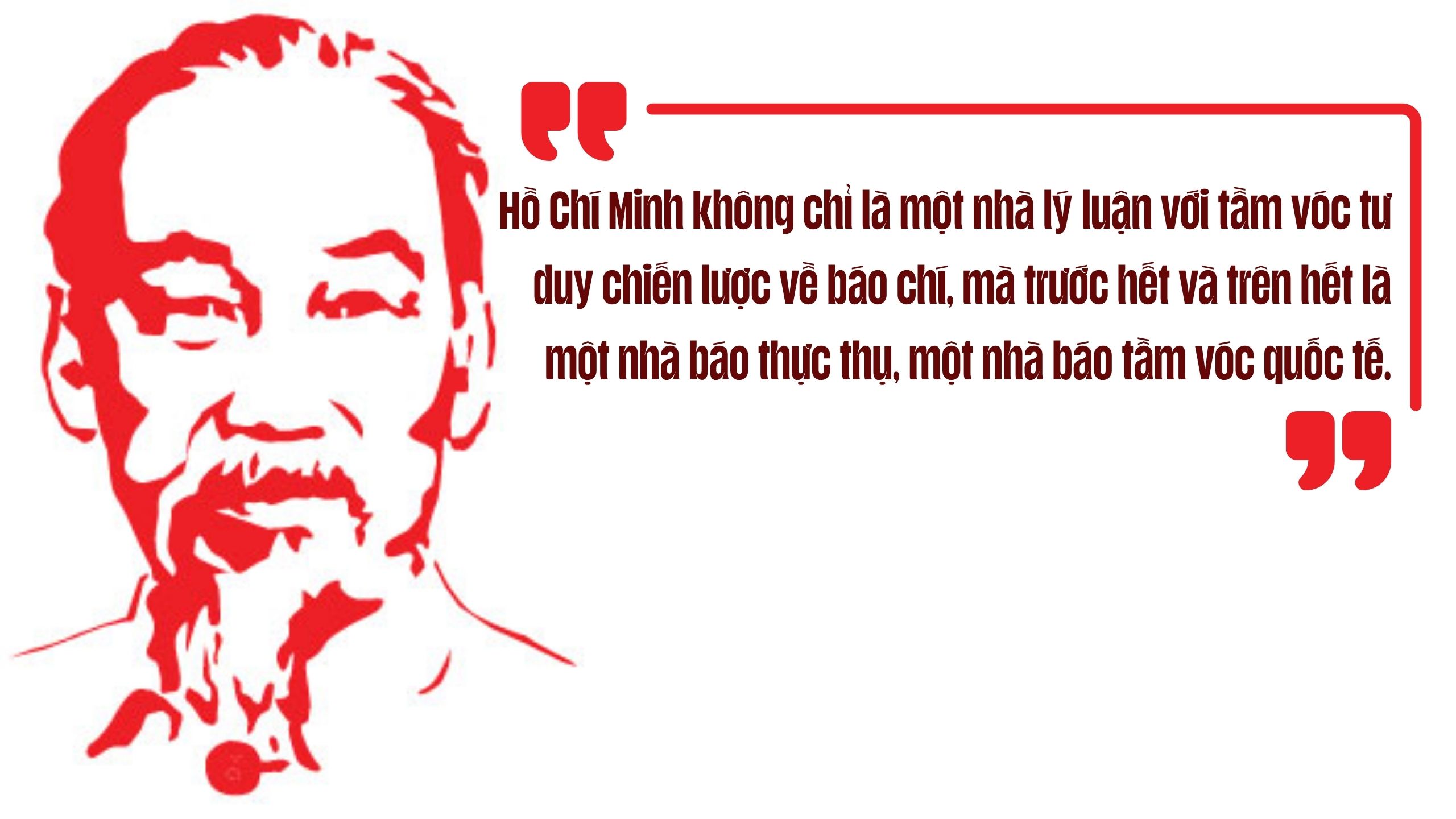
Ho Chi Minh was not only a theorist with strategic thinking on journalism but first and foremost a true journalist, a journalist of international stature. His pen was capable of covering many topics and writing in many languages.
In his general assessment of Ho Chi Minh's journalism career, Professor Ha Minh Duc commented: "He is the greatest proletarian journalist of the Vietnamese revolution". His journalistic works "clearly demonstrate the spirit of proletarian internationalism, imbued with knowledge and social research. His journalistic pen is not limited to the scope of a nation but carries the stature, knowledge and experience of an international journalist. It can be said that Ho Chi Minh has the stature of an international journalist".
References
1. Pham Van Dong: Ho Chi Minh, a man, a nation, an era, a career, Truth Publishing House, 1990.
2. Tran Van Giau: The basic formation of Ho Chi Minh's ideology, Truth Publishing House, 1995.
3. Ta Ngoc Tan: Ho Chi Minh - On the issue of journalism, Reference document, Institute of Journalism and Propaganda, 1995.
4. Ha Minh Duc: Ho Chi Minh's journalism and literary career, Education Publishing House 2000.
5. Do Quang Hung: More knowledge about Ho Chi Minh, Labor Publishing House, 2001.
Nhandan.vn
Source: https://nhandan.vn/special/Ho-Chi-Minh-nha-bao-tam-voc-quoc-te/index.html


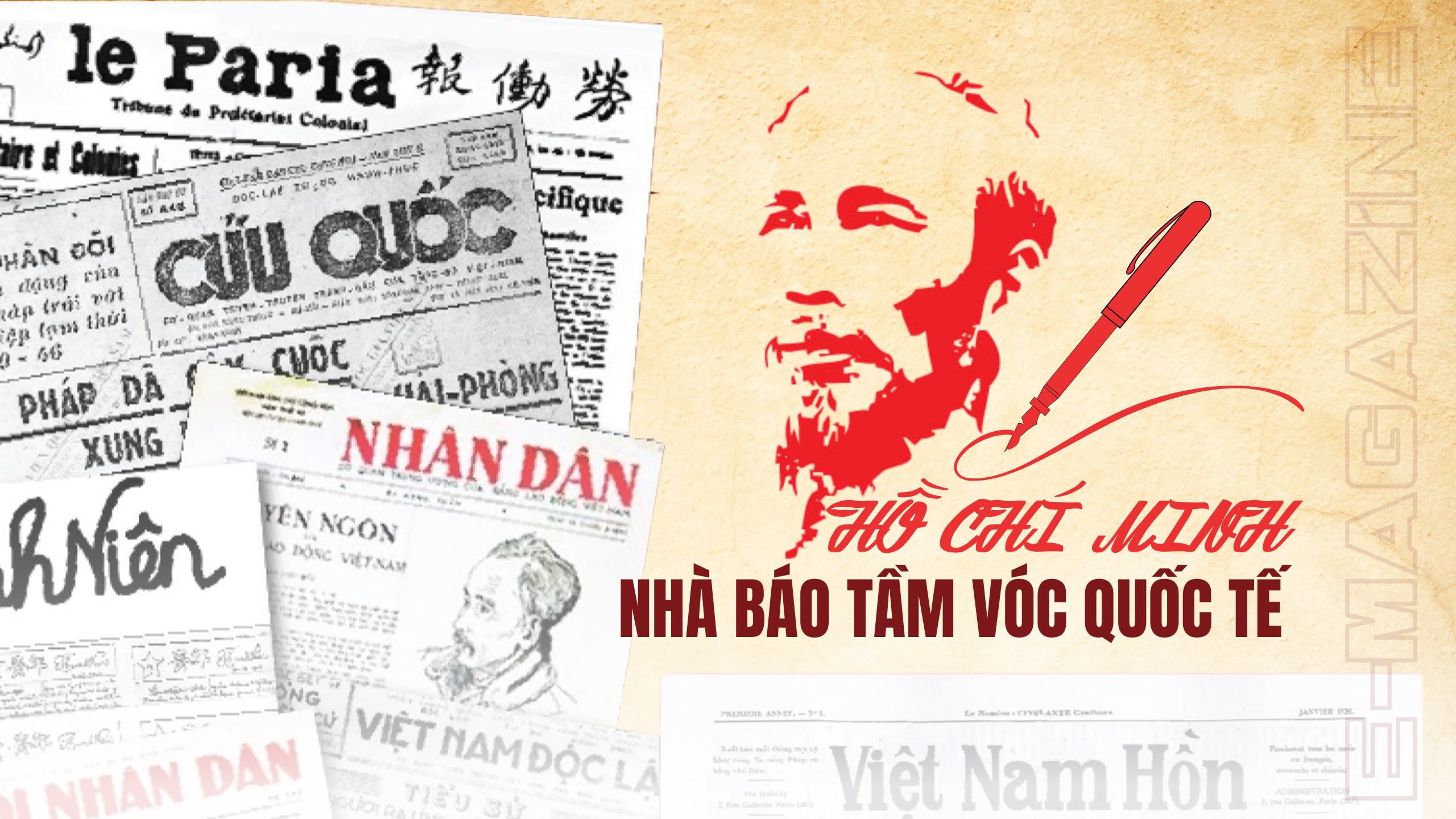







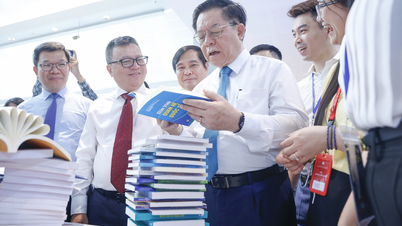

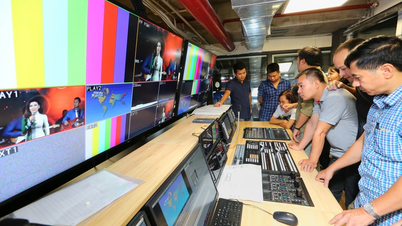

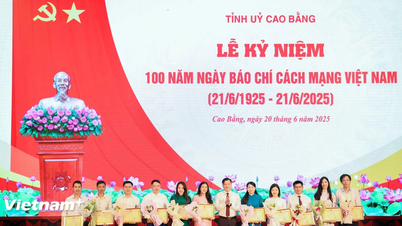


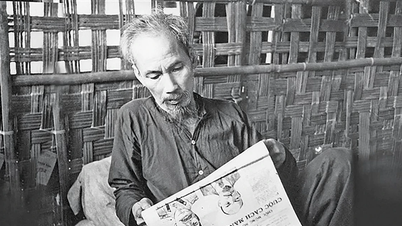

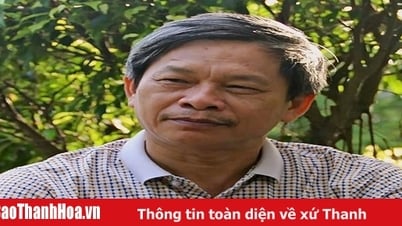
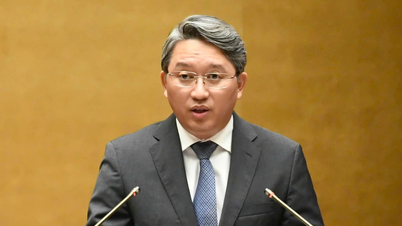
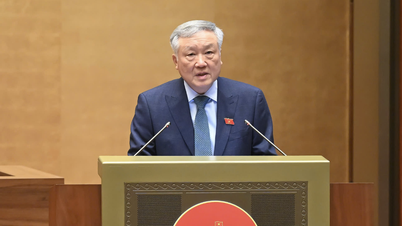

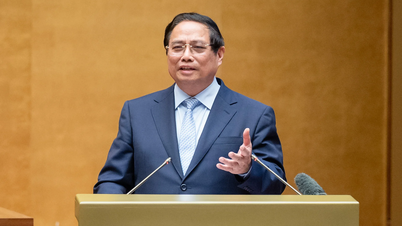


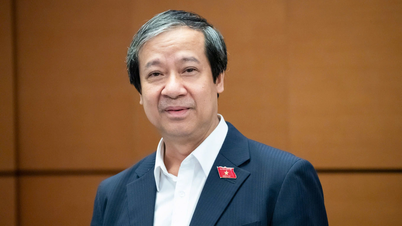
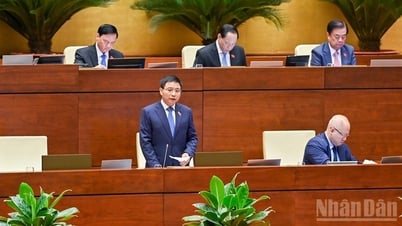




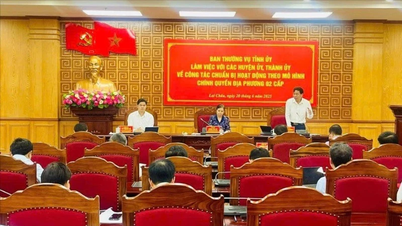
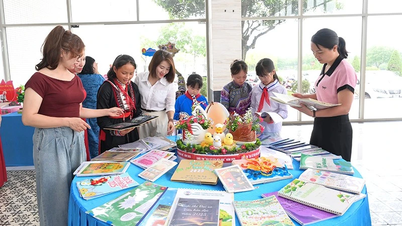

![[Video] From advertising to printing – the thousand-year journey of news](https://vphoto.vietnam.vn/thumb/402x226/vietnam/resource/IMAGE/2025/6/20/ddaafc5481924a59affdca906d9bbbfd)
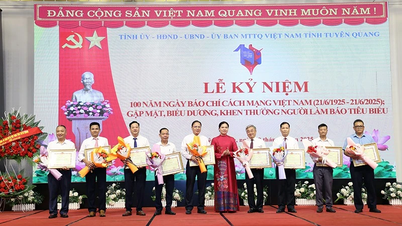
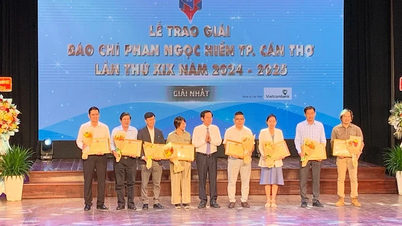
![[Photo] The 9th Congress of the Party Committee of the Office of the President, term 2025-2030](https://vphoto.vietnam.vn/thumb/1200x675/vietnam/resource/IMAGE/2025/6/20/78e7f27e8c4b4edc8859f09572409ad3)












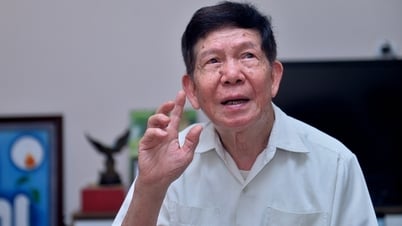











![[Maritime News] Wan Hai Lines invests $150 million to buy 48,000 containers](https://vphoto.vietnam.vn/thumb/402x226/vietnam/resource/IMAGE/2025/6/20/c945a62aff624b4bb5c25e67e9bcc1cb)


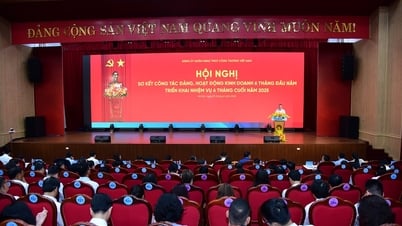





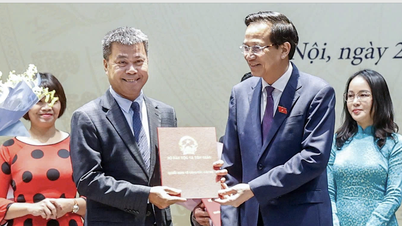
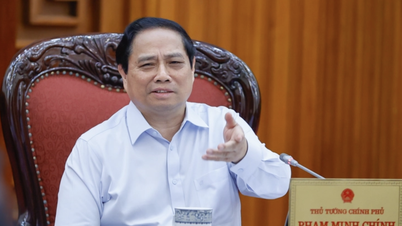
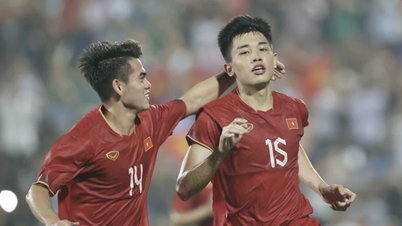
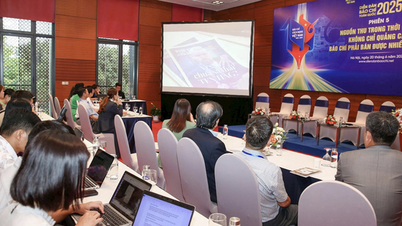

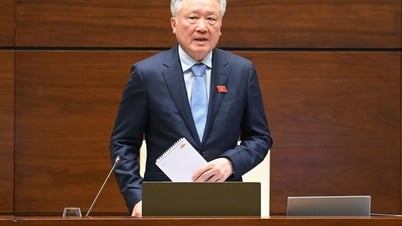


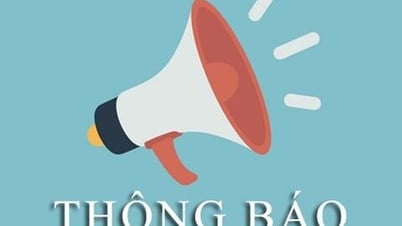

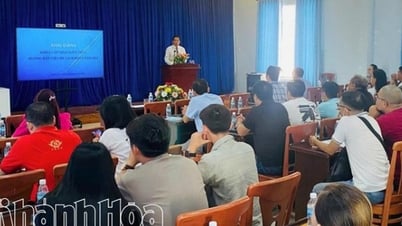
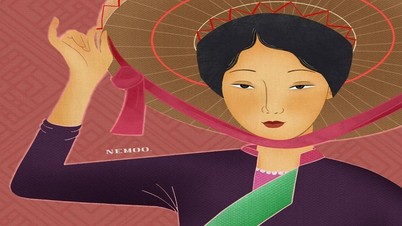
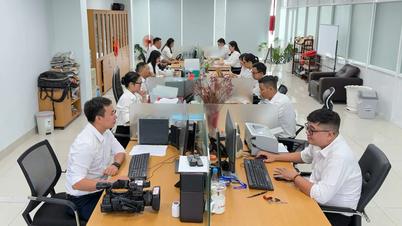





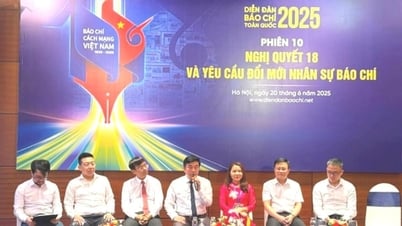
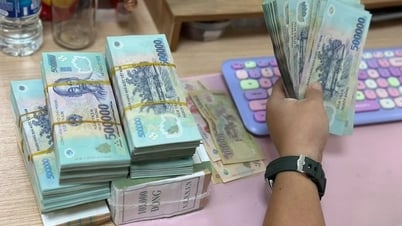
















Comment (0)